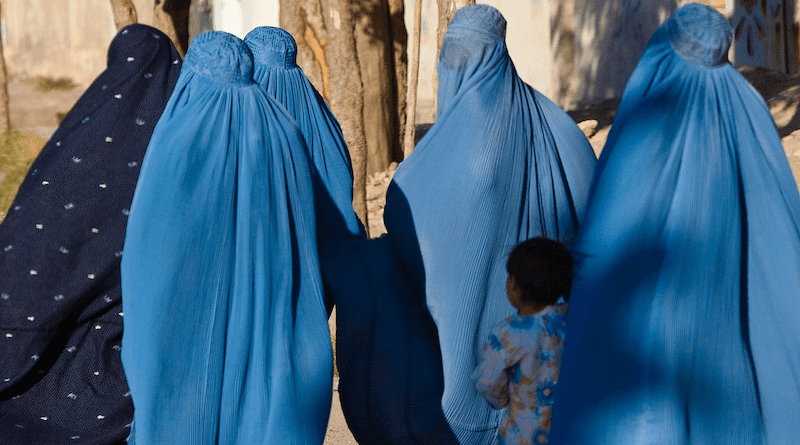Afghan Women’s Education In IEA – OpEd
Over the past two decades, women and girls in Afghanistan played a significant role in education by enrolling in schools and universities across thirty-four provinces despite security and traditional challenges. Female access to education at all levels was enshrined in the country’s newly abolished Constitution. These institutions prepared entrepreneurs, technocrats, doctors, and scholar-women who extended their support to the state of Afghanistan and its people in every sphere.
Unfortunately, despite agreeing on the provision of female education in the Doha agreement, Afghan Taliban took old school or centuries-old traditional measures against its women which ultimately led them to deprivation of their basic right of education. After taking control of Kabul on 30th August 2021, the Taliban put a de-facto ban on women’s secondary education and allowed females to get education up to 6th grade in separate classrooms. They also demanded universities to arrange separate classes for female students and announced a separate ministry to regulate female education in the country. Western countries did give a response to it and asked the Taliban to lift the ban on women’s education.
On the other hand, international institutions also offered assistance to the Taliban in this matter. Taliban provided a plan to work out a schedule to resume the education of women at the beginning of the new Islamic year. But many women’s rights advocates doubted the sincerity of Taliban commanders and that these sureties were made for international attention and gain, not for a sincere commitment to the cause. This lack of action protocol is only going to put women and girls at a greater margin of discrimination with no clear policy guaranteeing their access to education. Later on, at the end of Dec 2022, Taliban once again banned women from attending public and private universities and restricted them according to their old school policies.
President Ghani had previously taken many measures with international stakeholders including the countries like the USA and Non-governmental organizations in the field of education. In the previous government, the stakeholders provided enough support to fund free education for women and also provided them with scholarships to pursue their education outside Kabul. These stakeholders helped Afghanistan to produce young scholars, skilled labour, doctor and engineers to serve the Afghan community inside and outside. It also helped Afghanistan to build its own higher education universities where Afghan students can complete their higher studies in various fields. But, with the beginning of the new government in Kabul, a sordid turn was noticed when the new government banned women’s education without any rational reason and confined the women there behind the walls.
It’s also vital to remember that many Afghan technocrats and professionals have already departed the nation. The tribal leadership of Taliban has been noticed lacking the good governance skills and policy implementations with no formal training in place. Them being in power seems to be a “dead-end” in place with no proper mechanism and opportunities especially involving women. This justification emphasizes how important it is to guarantee women their freedom and education to make the generations better and literate.
The strategic error done by the west left the Afghan people in the hand of the Afghan Talibans ruling over them having suffocated rights for women. During the withdrawal of western forces, most of the Afghan elite have been seen leaving the country while sensing the trapped and oppressed future under them. Now the Taliban leadership seems to be more dynamic and diplomatic than the previous one as working on diplomatic side they can engage western countries with them. They are using women’s rights and women’s education as the most important tool of diplomacy to engage western countries to fulfil their own ends. They know how dear the west considers women’s rights to them so they will ultimately use it for pursuing diplomacy with the west. On the other hand, western countries especially the EU is re-evaluating their engagement policy with the Islamic Emirate of Afghanistan (IEA) to mitigate the post-conflict crisis and peacebuilding.
Conclusion:
Afghanistan has been a hotspot of human rights violations for long due to great powers’ tussles and invasions. But these powers after fulfilling their interest always leave the country and its people on the pity of insurgents and rebel groups. Like they did in 1989 and now in 2021. Now after the western withdrawal in 2021 Afghan women especially women have become the subject of human rights violations. Women are deprived of their basic education rights and are not allowed to pursue any work outside their house walls. Taliban has been using women’s rights as a tool to engage western countries and the west is also looking to re-engage with the Taliban for post-conflict peacebuilding.

